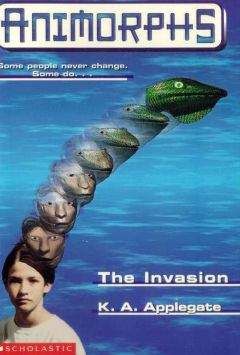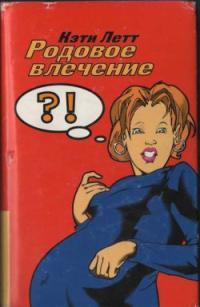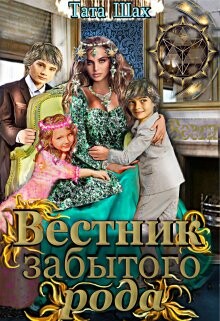Илья Франк - Английский язык с В. Ирвингом. Рип ван Винкль

Помощь проекту
Английский язык с В. Ирвингом. Рип ван Винкль читать книгу онлайн
His children, too, were as ragged and wild as if they belonged to nobody. His son Rip, an urchin begotten in his own likeness, promised to inherit the habits, with the old clothes of his father. He was generally seen trooping like a colt at his mother's heels, equipped in a pair of his father's cast-off galligaskins, which he had much ado to hold up with one hand, as a fine lady does her train in bad weather. Rip Van Winkle, however, was one of those happy mortals, of foolish, well-oiled dispositions, who take the world easy, eat white bread or brown, whichever can be got with least thought or trouble, and would rather starve on a penny than work for a pound.
If left to himself (если /он/ оставался наедине с собой; to leave [li:v] — left [left] — left — оставлять, покидать), he would have whistled life away in perfect contentment (он, бывало, просвистывал жизнь в прекрасном довольстве); but his wife kept continually dinning in his ears about his idleness (но его жена продолжала постоянно жужжать в его уши о его безделье; to din [dIn] — шуметь; надоедать, настойчиво повторять), his carelessness (его беспечности: «беззаботности»; care [kFq] — забота, уход), and the ruin he was bringing on his family (и упадке/крахе, /который/ он навлекает на семью). Morning, noon, and night (утром, днем и вечером/ ночью), her tongue was incessantly going (ее язык непрерывно двигался; incessantly [In’sesntlI] — непрерывно, непрестанно), and every thing he said or did was sure to produce a torrent of household eloquence (и все: «каждая вещь», /что/ он говорил или делал, непременно производила поток домашнего красноречия; eloquence [‘elqVkw(q)ns] — красноречие, ораторское искусство). Rip had but one way of replying to all lectures of the kind (Рип имел один способ отвечать на все проповеди этого рода), and that, by frequent use (и это из-за частого использования; frequent [‘fri:kwqnt] — частый), had grown into a habit (переросло в привычку; to grow [grqV] — grew [gru:] — grown [grqVn] — расти; становиться). He shrugged his shoulders (он пожимал плечами), shook his head (тряс своей головой; to shake [SeIk] — shook [SVk] — shaken [SeIkn] — трясти, дрожать), cast up his eyes (закатывал свои глаза), but said nothing (но ничего не говорил; to say [seI] — said [sed] — said — сказать). This, however (это, однако), always provoked a fresh volley from his wife (всегда провоцировало новый залп от его жены); so that he was fain to draw off his forces (таким образом, он был вынужден уводить свои войска; to draw [drO:] — drew [dru:] — drawn [drO:n] — тащить, тянуть), and take to the outside of the house (и отправляться за пределы дома; to take [teIk] — took [tVk] — taken [teIkn] — брать; отправляться /дорогой/) — the only side which, in truth (к единственной стороне, которая, по правде), belongs to a hen-pecked husband (принадлежит забитому: «подкаблучному» мужу).
If left to himself, he would have whistled life away in perfect contentment; but his wife kept continually dinning in his ears about his idleness, his carelessness, and the ruin he was bringing on his family. Morning, noon, and night, her tongue was incessantly going, and every thing he said or did was sure to produce a torrent of household eloquence. Rip had but one way of replying to all lectures of the kind, and that, by frequent use, had grown into a habit. He shrugged his shoulders, shook his head, cast up his eyes, but said nothing. This, however, always provoked a fresh volley from his wife; so that he was fain to draw off his forces, and take to the outside of the house — the only side which, in truth, belongs to a hen-pecked husband.
Rip's sole domestic adherent was his dog Wolf (единственным домашним сторонником Рипа был его пес Вольф; adherent [qd’hIqr(q)nt] — приверженец, поборник, сторонник), who was as much hen-pecked as his master (который был настолько же забитым: «таким же подкаблучником», как его хозяин; сравнительный оборот as [qz] … as указывает на тождественность сравниваемых объектов); for Dame Van Winkle regarded them as companions in idleness (ибо хозяйка ван Винкль рассматривала их как товарищей по безделью), and even looked upon Wolf with an evil eye (и даже смотрела на Вольфа злым глазом: «взглядом»; to look upon [lVk qpqn] — смотреть как на, считать за), as the cause of his master's going so often astray (как причину таких частых отлучек его хозяина; evil [i:vl] — зло; убыток; несчастье; порок). True it is (верно то, что), in all points of spirit befitting an honorable dog (во всех отношениях духа, приличествующих честной собаке; honorable [‘Onqrqbl] — честный; уважаемый; достопочтенный), he was as courageous an animal as ever scoured the woods (он был таким храбрым животным, какой когда-либо рыскал по лесам; courageous [kq’reIGqs] — бесстрашный, храбрый; to scoure [skaVq] — мыть; очищать; рыскать) — but what courage can withstand the everduring and all-besetting terrors of a woman's tongue (но какая храбрость может противостоять постоянным и вездесущим нападкам женского языка)? The moment Wolf entered the house his crest fell (в тот момент, когда Вольф входил в дом, его холка опадала), his tail dropped to the ground (его хвост опускался к земле), or curled between his legs (или закручивался между ног), he sneaked about with a gallows air (он крался с видом висельника; to sneak [sni:k] — красться; таиться; ускользать; gallows [‘gxlqVz] — виселица; приговор к смерти; висельник; air [Fq] — воздух; ветерок; внешний вид), casting many a sidelong glance at Dame Van Winkle (бросая многочисленные косые взгляды на хозяйку ван Винкль), and at the least flourish of a broomstick or ladle (и при малейшем взмахе метлы или ковша; flourish [‘flArIS] — цветение; расцвет; завитушка; показные движения; салют), he would run to the door with yelping precipitation (он, бывало, бежал к двери с тявкающей стремительностью).
Rip's sole domestic adherent was his dog Wolf, who was as much hen-pecked as his master; for Dame Van Winkle regarded them as companions in idleness, and even looked upon Wolf with an evil eye, as the cause of his master's going so often astray. True it is, in all points of spirit befitting an honorable dog, he was as courageous an animal as ever scoured the woods — but what courage can withstand the everduring and all-besetting terrors of a woman's tongue? The moment Wolf entered the house his crest fell, his tail dropped to the ground, or curled between his legs, he sneaked about with a gallows air, casting many a sidelong glance at Dame Van Winkle, and at the least flourish of a broomstick or ladle, he would run to the door with yelping precipitation.
Times grew worse and worse with Rip Van Winkle (условия жизни: «времена» становились все хуже и хуже для Рипа ван Винкля) as years of matrimony rolled on (как шли годы супружества); a tart temper never mellows with age (раздражительный нрав никогда не смягчается с возрастом), and a sharp tongue is the only edged tool (и острый язык является единственным заостренным инструментом) that grows keener with constant use (который становится острее от постоянного использования). For a long while he used to console himself (постоянно он привык утешать себя), when driven from home (когда выгнанный из дома: «когда /его/ выгоняли из дома»; to drive [draIv] — drove [drqVv] — driven [drIvn] — везти; перевозить; гнать; преследовать), by frequenting a kind of perpetual club of the sages (часто посещая разновидность вечного клуба мудрецов; perpetual [pq’petSVql] — бесконечный; вечный; пожизненный), philosophers (философов), and other idle personages of the village (и других праздных личностей деревни); which held its sessions on a bench before a small inn (который проводил свои заседания на скамейке перед маленькой гостиницей), designated by a rubicund portrait of His Majesty George the Third (обозначенной: «висел в качестве знака» румяным портретом Его Величества Георга Третьего; rubicund [‘ru:bIkqnd] — румяный).
Times grew worse and worse with Rip Van Winkle as years of matrimony rolled on; a tart temper never mellows with age, and a sharp tongue is the only edged tool that grows keener with constant use. For a long while he used to console himself, when driven from home, by frequenting a kind of perpetual club of the sages, philosophers, and other idle personages of the village; which held its sessions on a bench before a small inn, designated by a rubicund portrait of His Majesty George the Third.
Here they used to sit in the shade through a long lazy summer's day (здесь они привыкли сидеть в тени в течение долгого ленивого летного дня), talking listlessly over village gossip (обсуждая вяло деревенские сплетни; to talk over [tO:k ‘qVvq]) — обсуждать), or telling endless sleepy stories about nothing (или рассказывая бесконечные сонные истории ни о чем). But it would have been worth any statesman's money to have heard the profound discussions that sometimes took place (но услышать происходящие дискуссии стоило бы чиновнику за любые деньги: «но это бы стоило любых денег государственного деятеля услышать эти глубокие дискуссии, которые иногда имели место»), when by chance an old newspaper fell into their hands from some passing traveller (когда случайно старая газета попадала им в руки от какого-то проезжавшего путешественника). How solemnly they would listen to the contents (как торжественно они слушали бывало содержание), as drawled out by Derrick Van Bummel (когда его протяжно читал Деррик ван Буммель; to drawl [drO:l] — растягивать слова), the schoolmaster (школьный учитель), a dapper learned little man (проворный ученый маленький человек; dapper [‘dxpq] — опрятный /об одежде/; проворный, резвый /обычно о людях небольшого роста/; learned [‘lq:nId] — ученый, эрудированный; знающий, сведущий), who was not to be daunted by the most gigantic word in the dictionary (которого не устрашало самое гигантское слово в словаре; to daunt [dO:nt] — укрощать; устрашать, отпугивать); and how sagely they would deliberate upon public events some months after they had taken place (и как мудро они размышляли об общественных событиях через несколько месяцев после того, как они произошли).
Here they used to sit in the shade through a long lazy summer's day, talking listlessly over village gossip, or telling endless sleepy stories about nothing. But it would have been worth any statesman's money to have heard the profound discussions that sometimes took place, when by chance an old newspaper fell into their hands from some passing traveller. How solemnly they would listen to the contents, as drawled out by Derrick Van Bummel, the schoolmaster, a dapper learned little man, who was not to be daunted by the most gigantic word in the dictionary; and how sagely they would deliberate upon public events some months after they had taken place.
The opinions of this junto were completely controlled by Nicholas Vedder (убеждения этого тайного союза были полностью под контролем Николаса Веддера; junto [‘GAntqV] — тайный союз, клика), a patriarch of the village (патриарха деревни; patriarch [‘peItrIQ:k] — глава рода; патриарх; основатель), and landlord of the inn (и владельца гостиницы), at the door of which he took his seat from morning till night (у двери которой он занимал свое место с утра до вечера), just moving sufficiently to avoid the sun (только сдвигаясь в достаточной мере, чтобы избежать солнца; sufficient [s(q)’fIS(q)nt] — достаточный, обоснованный; достаточное количество) and keep in the shade of a large tree (и держаться в тени большого дерева); so that the neighbors could tell the hour by his movements as accurately as by a sun-dial (так, что соседи могли определять время: «час» по его передвижениям так же точно, как по солнечным часам). It is true he was rarely heard to speak (правда, редко слышали, чтобы он говорил: «это правда, что он был редко слышим говорящим»; to hear [hIq] — heard [hq:d] — heard — слышать; услышать), but smoked his pipe incessantly (но беспрестанно курил свою трубку; incessant [In’sesnt] — непрерывный, беспрестанный).























